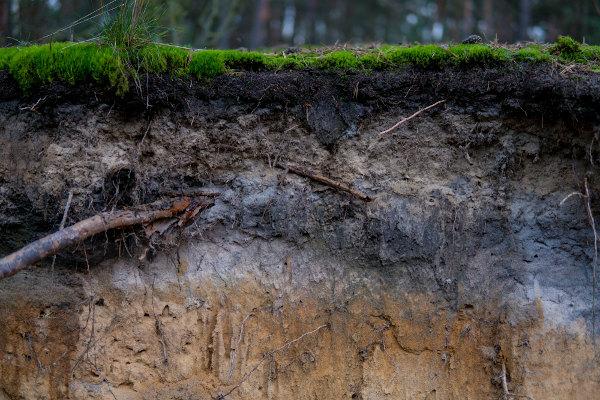Alberto Caeiro is one of several heteronyms of the Portuguese writer Fernando Pessoa. According to Pessoa, he was born in 1889, in Lisbon, and died in that same city in 1915. Caeiro lived most of his life in the countryside. Thus, his poetry has a bucolic character, in addition to valuing simplicity and sensations (sensationism), being also marked by paganism.
Read too: Mário de Sá-Carneiro — one of the exponents of modernism in Portugal
Topics of this article
- 1 - Video lesson about Alberto Caieiro
- 2 - Biography of Alberto Caeiro
- 3 - Characteristics of Alberto Caeiro's poetry
- 4 - Poems by Alberto Caeiro
- 5 - Heteronyms of Fernando Pessoa
Video lesson about Alberto Caieiro
Biography of Alberto Caeiro
Alberto Caeiro da Silva was born in April 1889, in the city of Lisbon, in Portugal. Although, spent much of his life in the countryside, where he wrote most of his poems. He is the author of the book the herd keeper and the incomplete work the loving shepherd. He received little education, only primary education, and had no profession.
He was orphaned very early, so he lived, with some income, only in the company of an old great-aunt. According to its creator, the Portuguese writer Fernando Pessoa (1888-1935), his “poems are what he had in his life”. Furthermore, “there were no incidents, there is no history”.
Caeiro was also “ignorant of life and almost ignorant of letters, without conviviality or culture”.|1| Physically, he was of medium height. Shaved face, blond, blue eyes. According to Pessoa, he “didn't seem as fragile as he was.” |2| Nonetheless, died of tuberculosis in 1915, in Lisbon.
Do not stop now... There's more after the ad ;)
Characteristics of Alberto Caeiro's poetry
Alberto Caeiro's poetry has the following characteristics:
Bucolism — idealization of country life.
Sensationism — appreciation of sensations.
Paganism — polytheistic character.
Free verse — no meter and no rhyme.
Simple language — no comprehension difficulties.
Locus amoenus — pleasant place.
Know more: Arcadism — the 18th century literary movement whose works have a bucolic character
Poems by Alberto Caeiro
In the following poem by Alberto Caeiro, the lyrical self calls itself a “herd keeper”. Then we notice that he calls his thoughts “herd”. He then says that his thoughts “are all sensations” (sensationism). So he shows the importance of the senses in understanding reality. For him, seeing and smelling a flower is thinking about that flower:
I am a herdsman
I am a herdsman.
The herd is my thoughts
And my thoughts are all sensations.
I think with my eyes and with my ears
And with hands and feet
And with the nose and mouth.
To think of a flower is to see and smell it
And to eat a fruit is to know its meaning.
So when on a hot day
I feel sad to enjoy you so much,
And I lie down on the grass,
And I close my warm eyes,
I feel my whole body lying in reality,
I know the truth and I am happy.|3|
In the next poem, the lyrical self again speaks about the supremacy of the senses or sensations. Thus, he says that what we see and hear is exactly what we see and hear. But we must “know how to see”, which means not thinking or rationalizing what we see. So, he defends simplicity and objectivity, in order to contradict the poets, who do not accept that the stars and flowers are just stars and flowers:
What we see of things are things
What we see of things are things.
Why would we see one thing if there was another?
Why would seeing and hearing be deluding ourselves
If seeing and hearing are seeing and hearing?
The essential thing is to know how to see,
Knowing how to see without thinking,
Knowing how to see when you see,
And don't even think when you see it,
Not even seeing when you think.
But this (sad for us who wear our souls dressed!),
This requires a thorough study,
A learning to unlearn
And a kidnapping in the freedom of that convent
That the poets say the stars are the eternal nuns
And the flowers the penitents convinced of a single day,
But where after all the stars are nothing but stars
Not flowers but flowers,
That's why we call them stars and flowers.|3|
Heteronyms of Fernando Pessoa
Alberto Caeiro
Álvaro de Campos
Antonio Mora
Alexander Search
Antonio Seabra
Baron of Teiv
Bernardo Soares
Carlos Otto
Charles James Search
Charles Robert Anon
Pacheco rabbit
Faustino Antunes
Frederico Reis
Frederick Wyatt
Henry More
I. I. cross
Jean Seoul
Joaquim Moura Costa
Maria Jose
pantaleon
Pero Botelho
Raphael Baldaya
Ricardo Reis
Thomas Crosse
Vicente Guedes
Grades
|1| PERSON, Ferdinand. Intimate and self-interpretation pages. Lisbon: Attica, 1996.
|2| PERSON, Ferdinand. Intimate writings, letters and autobiographical pages. Introduction, organization and notes by António Quadros. Lisbon: Publications Europe-America, 1986.
|3| PERSON, Ferdinand. Poems by Alberto Caeiro. Lisbon: Attica, 1946.
image credit
[1] Wikimedia Commons (reproduction)
By Warley Souza
Literature teacher



